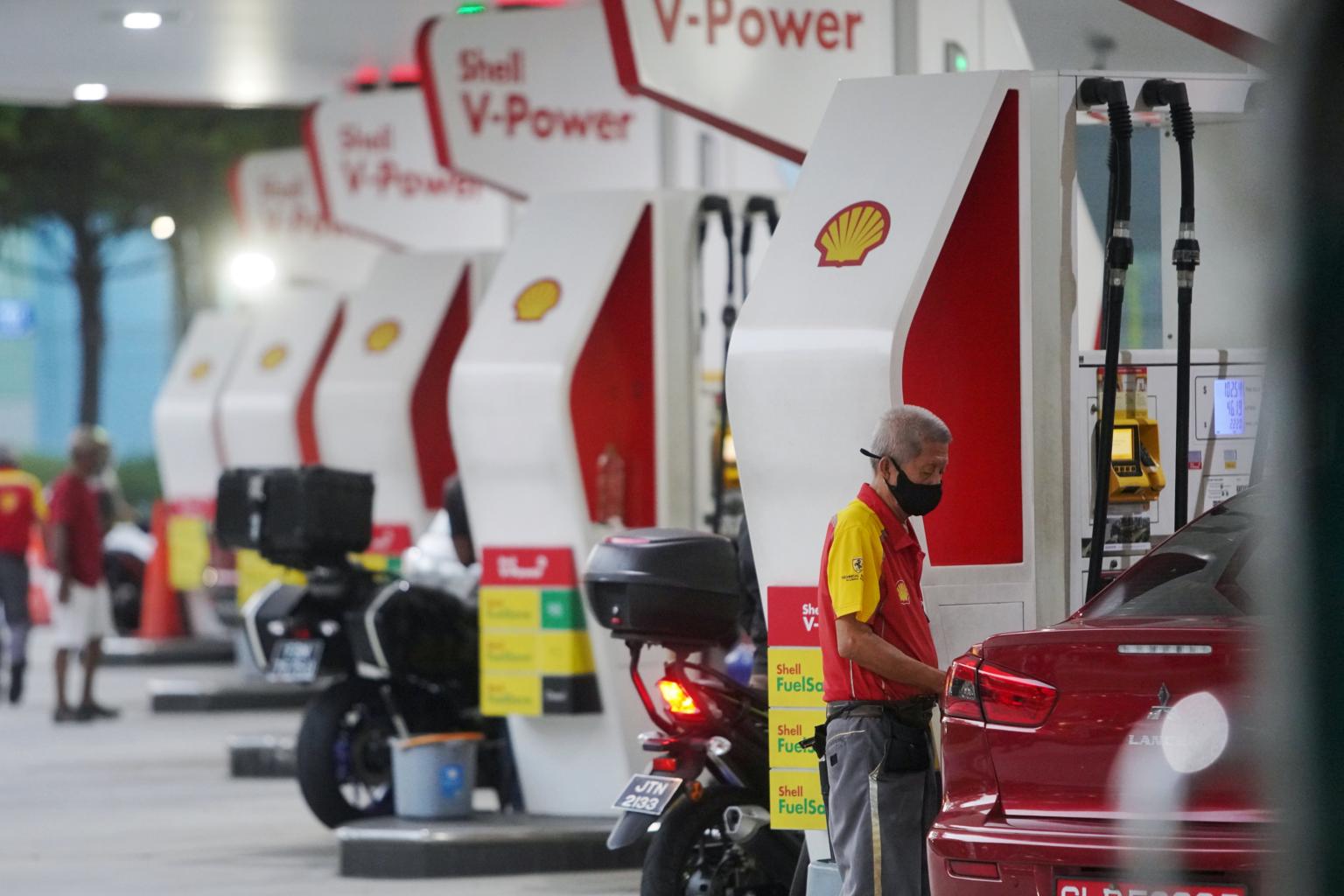Competition watchdog will take action if oil companies coordinate price increases, says Tan See Leng
Sign up now: Get ST's newsletters delivered to your inbox

All petrol prices, even the 92-octane fuel which can be used by the majority of cars here, are now $3 or more a litre.
PHOTO: ST FILE
Follow topic:
SINGAPORE - The Competition and Consumer Commission of Singapore (CCCS) is keeping a close watch on pump prices to make sure there is no anti-competitive behaviour among oil companies as global oil prices rise in the wake of the Russian invasion of Ukraine, said Manpower Minister Tan See Leng.
"If there is evidence of anti-competitive behaviour, such as coordinated price increases, CCCS will investigate and take firm enforcement action under the Competition Act," he said in Parliament on Thursday (March 10).
He was responding to a question from Dr Lim Wee Kiak (Sembawang GRC), who asked what the ministry is doing to ensure that petrol companies are not profiteering from the current situation.
Dr Lim also asked whether oil companies could justify the price hikes as they raised their prices just one day after Russia invaded Ukraine on Feb 24.
As at Thursday, all petrol prices, even the 92-octane fuel which can be used by the majority of cars here, are now $3 or more a litre here. The latest increase was by Esso on just Thursday morning, with its 92-octane fuel up by another 16 cents, now costing $3.16 a litre.
Dr Tan said global oil prices and domestic pump prices had already been rising at the start of the year as a result of rising Russia-Ukraine tensions, even before the war.
He also noted that only three of the five retailers here raised pump prices between Feb 24 and 25 after Russia invaded Ukraine, while the other two retailers did not adjust prices.
Both have since adjusted their pump prices upwards.
"Overall, the increase in petrol and diesel prices reflect the rise in the price of crude oil over the past months," he said.
Dr Tan added that motorists should keep themselves updated on the latest developments as well-informed consumers act as a key deterrent against unreasonable pricing.
He cited Fuel Kaki, a retail petrol price comparison website developed by the Consumers Association of Singapore (Case) which allows people to compare retail pump prices, as an example of a useful app.
Asked by the Leader of the Opposition Pritam Singh if the Government is looking at giving another support package to private-hire drivers and taxi drivers, not dissimilar to the $500 million aviation support package announced on Wednesday, Dr Tan said the current slew of measures appear to be helping the drivers.
"There are a lot of developments today and volatility in terms of pricing. At this particular point in time, we think that the current slew of measures, support packages and so on appear to be having some impact in supporting them," he said.
"We will not hesitate to roll out more but at this particular point in time, I think we need to monitor the situation very, very closely."
In a separate question, Mr Darryl David (Ang Mo Kio GRC) asked if the Government has plans to help small and medium-sized enterprises affected by increased fuel and energy costs.
Replying in his capacity as the Second Minister for Trade and Industry, Mr Tan pointed to the suite of measures currently available, including the small business recovery grant that helps firms in sectors badly affected by Covid-19, and Enterprise Singapore's loan schemes that help to ease businesses' cash flow.
He did not rule out more help if there is a need.
On energy prices, he noted that the impact of the war in Ukraine on Singapore's energy supplies is mitigated by Singapore's diversified energy sources, although electricity prices are likely to remain high, or increase even further as global energy costs go up.
"The conflict in Ukraine poses limited direct risks to our energy supplies. Nevertheless, as Singapore is heavily reliant on the global market for our energy supplies, we will be affected by the high and volatile gas prices resulting from the conflict," he said.
The Energy Market Authority has continued to make sure that electricity companies have enough fuel reserves. It has also set up a standby fuel facility which electricity companies can tap on to produce electricity.
The Temporary Electricity Contracting Support Scheme, which allows large electricity users to purchase electricity at fixed prices, has also been extended from March to May.
"We will extend it further if necessary. We are also working with generation companies and electricity retailers to offer long-term, fixed price contracts to consumers who wish to have more price stability," said Dr Tan of the scheme.

